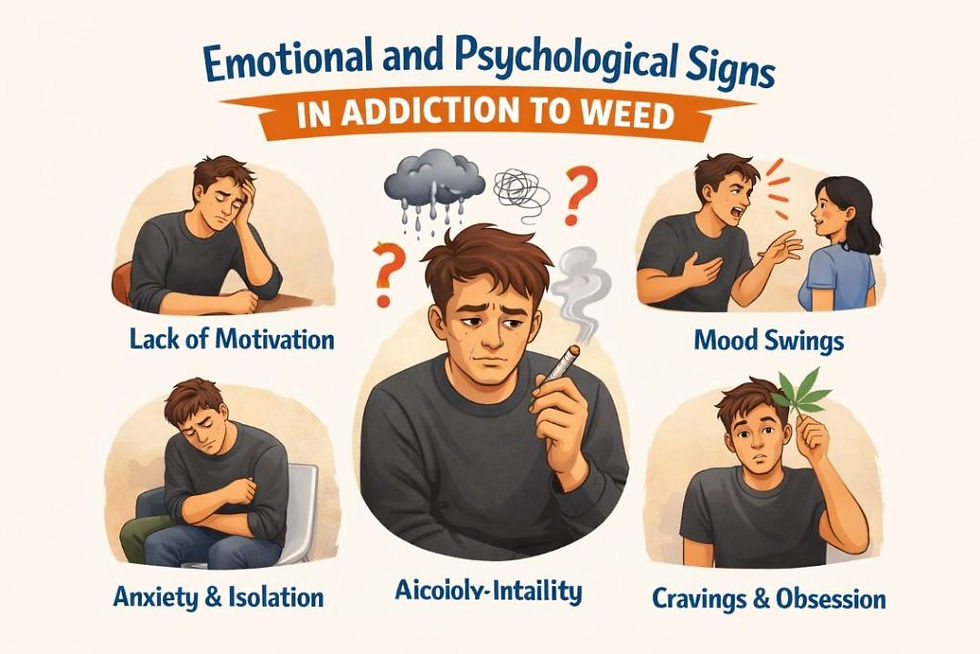ADHD Awareness Month 2025: Expert ADHD Care in DeLand, FL
- Felicia Parris

- Oct 20, 2025
- 3 min read
Every October, ADHD Awareness Month invites us to better understand Attention-Deficit/Hyperactivity Disorder (ADHD), its presentations, challenges, and the many ways people live with it. According to the CDC, about 7 million U.S. children (11.4%) aged 3–17 have been diagnosed with ADHD as of 2022. While ADHD often begins in childhood, its effects can persist into adulthood, sometimes undetected and under-supported.
This month provides a vital opportunity for individuals, families, educators, and health professionals to learn, share, and grow more compassionate toward those navigating ADHD.

Why ADHD Awareness Month Matters
Raising awareness isn’t just symbolic; it’s essential to shifting stigma, improving access, and empowering people to seek help. Here are a few key reasons:
Breaking misconceptions Many believe ADHD is just “kids being hyper.” But research shows it’s a neurodevelopmental disorder with genetic, brain, and environmental factors.
Spotting overlooked cases Girls, adults, and people in underserved communities are often underdiagnosed because their symptoms may be more subtle.
Promoting early intervention The earlier ADHD is recognized, the more tools a person can gain to manage challenges and reduce secondary impacts like anxiety, academic or career struggles, and low self-esteem.
Building supportive environments Schools, workplaces, and communities can adopt practices such as flexible deadlines, task breakdowns, or shorter focus windows that help people with ADHD thrive.
The 2025 theme, “The Many Faces of ADHD,” encourages sharing stories across different ages, backgrounds, and experiences.
Signs & Symptoms: What to Watch For
ADHD doesn’t look the same in everyone. Some people are more inattentive, others hyperactive or impulsive, and some experience a combination of both. Here are common signs:
Difficulty sustaining focus or frequent daydreaming
Trouble organizing tasks or forgetting appointments and deadlines
Impulsiveness such as interrupting, blurting out, or acting without thinking
Restlessness or feeling constantly “on the go”
Difficulty transitioning between tasks or frequent procrastination
In adults: disorganization at work, poor time management, and mood swings
Because ADHD often coexists with other conditions like anxiety, depression, or learning disabilities, recognizing overlapping symptoms is crucial.
What You Can Do This Month (and Beyond)
During ADHD Awareness Month, consider taking these practical steps:
Learn and share reliable information Use trusted sources like the CDC and ADHD advocacy organizations to share facts and resources on social media.
Self-check or screen If you suspect you or someone you know may have ADHD, validated online screening tools can be a good first step toward clarity.
Talk with a specialist A qualified psychologist, psychiatrist, or ADHD coach can help confirm a diagnosis and guide treatment options.
Advocate for accommodations Schools and workplaces increasingly recognize ADHD as a valid reason for adjustments. Don’t hesitate to ask for what you need.
Connect with community and stories Hearing others’ ADHD journeys can reduce isolation and spark insight, especially under this year’s “Many Faces of ADHD” theme.
Example: Meeting “Jorge,” an Adult with Late ADHD Recognition
Jorge, 34, always felt disorganized. His school reports said he “just didn’t apply himself.” It wasn’t until his 30s that he read an article during ADHD Awareness Month and realized his struggles matched the symptoms. He sought evaluation, received ADHD treatment with coaching, and now uses structured routines, reminders, and flexible work techniques. He reports more clarity, less overwhelm, and a renewed sense of purpose.
His experience reflects countless others who discover that ADHD isn’t a moral failing, it’s a neurological challenge that affects how the brain functions.
Building Trust, Authority & Connection
At DeLand Treatment Solutions, our mission is to provide accurate, compassionate, and evidence-based information. We rely on peer-reviewed research and expert insights to explain ADHD clearly, not through jargon, but in a way that connects to real life.
Call us today at (386) 866-8689. When you explore our ADHD Awareness Month resources, know that behind them are clinicians, researchers, and individuals committed to helping you navigate your journey with understanding and support.



Comments